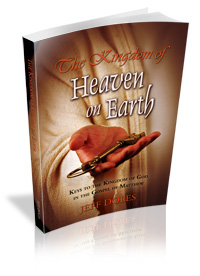Back when I was a sophomore in Bible college, before “small group” became the popular concept it is today, I was a part of a small group that met on Monday nights. It wasn’t designed for Bible study, or class study, or mission, or “ministry,” or “prayer meeting.” Steve, a fellow student who began the group, knew that our schedules were already overloaded with these activities, plus our class loads and day jobs. What we needed was a chance to cool out, to reflect, to just be with God and each other. This weekly get-together was appropriately called Taking Time.
It was difficult for us at first. We wanted to “redeem the time,” to “make the most of every opportunity” (Eph 5:16
KJV and
NIV). To us, this meant a flurry of activity, going out and doing, always being on — otherwise time was being wasted. When we were so involved in giving up our time for God, how could we possibly take time with Him?
What we needed to learn was that serving God sometimes means simply sitting with God and enjoying Him, that godly contemplation is the flip side of godly activity, and that both are necessary for the Christian walk.
Years later, a book by Elizabeth O’Conner,
Journey Inward, Journey Outward, helped me understand more. Even the title became a touchstone for me because it shows both aspects of the spiritual life. We begin with the journey inward. This is the prayer life, where we meet and come to know God, where we hear His call. Then He leads us on our journey outward, to obey and serve Him in the active life. As we become depleted in our activity, He calls us back on the inward journey to be renewed.
As difficult as it may be to believe, everyone of us can take time for the inward journey without the world coming to an end. Anthony Bloom, in his book
Beginning to Pray, suggests an exercise to put this to the test. Choose a period of two to five minutes to sit quietly in the presence of the Lord. Set the timer on your clock to signal when to begin. When the timer goes off, stop whatever you are doing. Enjoy God. Let nothing distract you from this — not a suddenly remembered chore, not a ringing phone, not a knock at the door — nothing! When your time is up, Behold! The world can, and does, wait while you are not busy with it.
Not only is it possible for us to take time to be with God, it is essential that we do so. Someone has likened prayer to the breathing of the body. Like breathing, prayer must be the constant rhythm of our every day — speaking to God, listening to God, being with God. When we pray only in stray moments, says Henri Nouwen, we marginalize prayer. “Whenever you feel that a little praying can’t do any harm, you will find that it can’t do much good either. Prayer has meaning only when we can say that without it, a man could not live” (from
With Open Hands).
When we take time to be present to God, we don’t increase the burdens of the day, we lessen them. When we pray, we don’t add to the chaos, we begin to find calmness and stability.
Years ago, I realized how the devotional practice of prayer and Bible reading helped me through the crises of my high school years. The controversies of the early seventies, the break-up of my parent’s marriage, and the intimidating experiences of growing up could have spun me out of control. But the habit of “quiet time” I learned from my grandmother and my Sunday School teacher helped me stay centered and focused on God.
Another of my spiritual mentors discovered the centering effect of taking time with God even (or especially) in the midst of the overwhelming responsibilities and pressures of pastoral ministry. He learned to walk a few miles every day. As he walked, he prayed. He removed himself, physically and spiritually, to a place where he could simply be with God. This brought him peace and perspective, and a new enthusiasm for ministry.
Brother Lawrence, who wrote the spiritual classic
The Practice of the Presence of God, took the time to acknowledge the presence of God in all his moments. He discovered that he enjoyed the divine presence as much in the monastery kitchen as in his prayer closet.
Anyone of us can experience this presence — but only if we take time.

